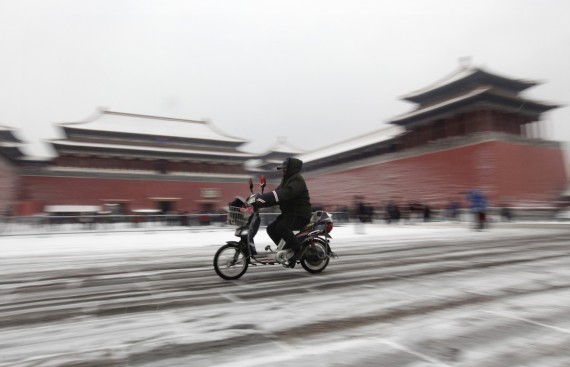China’s Great Rebalancing Act
More on:

As Vice President Biden meets with Xi Jinping and other Chinese leaders this week, his number one economic talking point is almost certain to be about “rebalancing.” Nearly all of Washington’s principal economic concerns, from currency valuation to Chinese industrial policy, touch this central issue. But, quite frankly, rebalancing is not just an American goal. It is, too, a Chinese objective because Beijing’s existing growth model—predicated on the two pillars of exports and capital-intensive investment—is delivering diminishing returns, and China’s savvy leaders know it.
A major new report from Eurasia Group, China Great Rebalancing Act, explains why.
First, a little truth in advertising: I’m the head of the Asia practice group at Eurasia Group, so I helped write the report. But our team’s report is well worth reading because it provides a very comprehensive overview of the forces and dynamics shaping the future of China’s political economy.
The report looks at Beijing’s rebalancing efforts from various angles, including income; domestic finance; energy supply, demand, and pricing; labor trends; and economic geography. Its bottom line is this: China’s leaders are committed to altering their country’s macroeconomic landscape. They have correctly diagnosed many of the maladies that ail China’s economy and, at least on paper, have prescribed many of the right solutions. But China’s leaders do not have the political stomach to take the toughest rebalancing steps. And that means they will put off the most difficult decisions about how—and how quickly—to rebalance China’s economy. From our vantage point, that means Beijing will confront starker political choices down the road.
If you’re interested in the future of China’s political economy, I urge you to read the paper at the Eurasia Group website.
More on:
 Online Store
Online Store